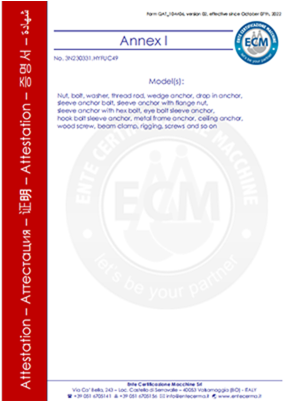Sep . 14, 2024 12:02 Back to list
304 stainless steel nuts
The Versatility and Strength of 304 Stainless Steel Nuts
When it comes to fasteners, nuts are essential components that play a crucial role in various applications, ranging from construction to manufacturing. Among the vast array of materials used for nuts, 304 stainless steel is one of the most popular choices. Known for its incredible properties, 304 stainless steel nuts are widely regarded for their durability, corrosion resistance, and versatility.
What is 304 Stainless Steel?
304 stainless steel is a type of austenitic stainless steel that contains 18% chromium and 8% nickel. This composition enhances its resistance to oxidation and corrosion, making it suitable for a wide range of environments, including those that are moist, chemical-laden, or exposed to the elements. The addition of nickel allows 304 stainless steel to maintain its structure at high temperatures, which is beneficial in many industrial applications.
Key Properties of 304 Stainless Steel Nuts
1. Corrosion Resistance One of the most significant advantages of 304 stainless steel nuts is their superior resistance to corrosion. This characteristic allows them to maintain their integrity even when exposed to harsh weather conditions or corrosive materials. This makes them ideal for outdoor structures, marine environments, and chemical processing applications.
2. Strength and Durability 304 stainless steel nuts are known for their impressive tensile strength and durability. They can withstand high levels of stress and strain without deforming or breaking, which is crucial in applications requiring long-lasting fasteners. This resilience reduces the need for frequent replacements, ultimately leading to cost savings.
304 stainless steel nuts

3. Non-Magnetic Properties Unlike some other metals, 304 stainless steel is non-magnetic, which can be particularly advantageous in applications where magnetic fields could interfere with operation. This property makes 304 nuts suitable for electronics and precision instruments.
4. Ease of Fabrication 304 stainless steel is relatively easy to work with during manufacturing. It can be easily machined and shaped, which allows for the production of various types of nuts, including hex nuts, lock nuts, and wing nuts. This flexibility in design helps meet specific application requirements.
5. Hygienic The smooth surface of 304 stainless steel nuts prevents the accumulation of dirt and bacteria, making them ideal for use in food processing and healthcare applications. This hygienic quality is essential in industries where cleanliness is paramount.
Applications of 304 Stainless Steel Nuts
The versatility of 304 stainless steel nuts makes them suitable for a myriad of applications. They are commonly used in the construction industry for assembling structures, in marine applications to withstand the harsh marine environment, and in the manufacturing of appliances and machinery. Additionally, 304 nuts are employed in both residential and commercial plumbing systems due to their reliability and resistance to corrosion.
Conclusion
In summary, 304 stainless steel nuts are an excellent choice for a wide range of applications due to their remarkable properties, including corrosion resistance, strength, and ease of fabrication. As industries continue to evolve, the demand for reliable and durable fasteners like 304 stainless steel nuts will undoubtedly increase. Investing in high-quality nuts not only enhances the integrity of any structure or machine but also ensures long-lasting performance in various challenging environments.


